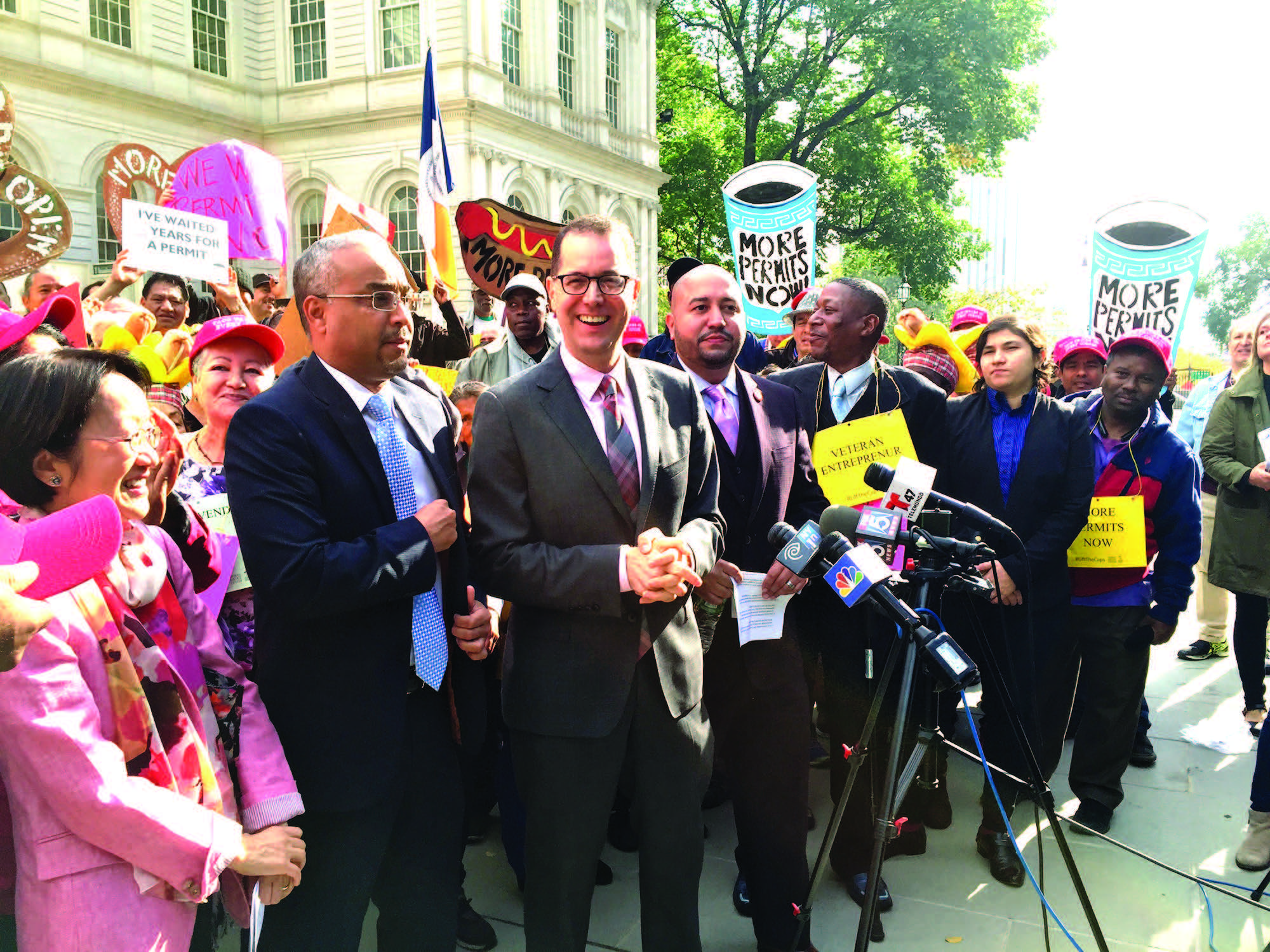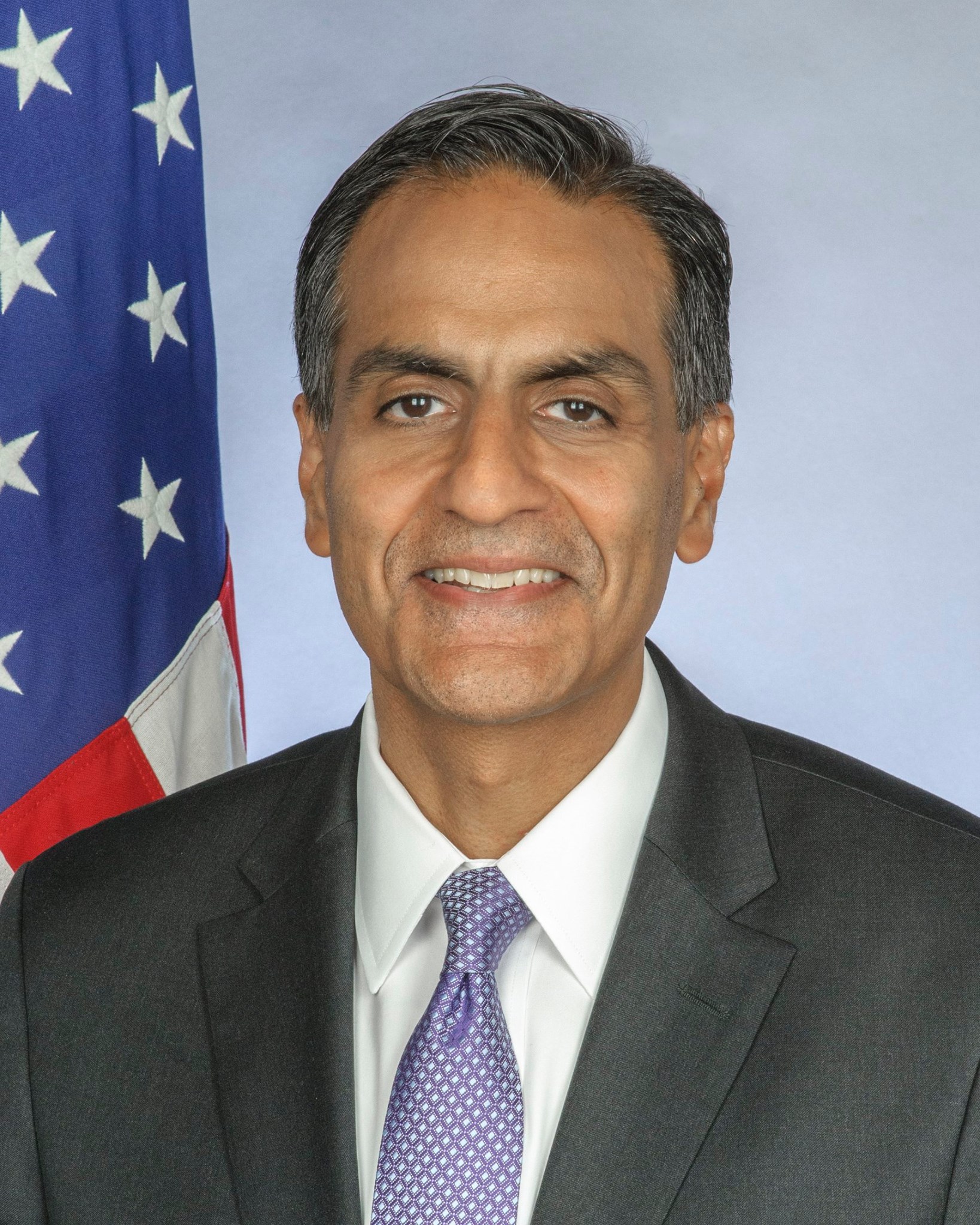
NEW YORK CITY (TIP): Hundreds of street vendorsgathered, October 13, atNew YorkCity Hall steps where NYCCouncil Member Mark Levine along with others formally announced the introduction of Street Vending Modernization Act (SVMA), a legislation that will reform street vending in New York City and create new enforcement tools.
Hundreds of street sellers, most of them immigrants, waved signs demanding, “We want Permits Now””More permits now” or ‘I’ve waited 15 years for a permit now.”
There are as many as 20,000 street vendors in New York City – hot dog vendors, flower vendors, t-shirt vendors, street artists, fancy food trucks, and many others.The city capped the number of permits it issues to vendors at 5,000 in 1981.
According to the Street Vendor Project, a membership-based project with nearly 2,000 vendor members who are working together to create a vendors’ movement for permanent change, some 15,000 vendors operate illegally – or pay up to $25,000 to rent a permit that would only cost $200 through legal channels.
Sean Basinski, director of the Street Vendor Project, said, “The vendors just want the right to work legally.”
Daras mia, who migrated from Bangladesh 17 years ago, has been selling Bengal peanuts in Manhattan for many years. Though he has a green card, he did not get a permit to have his own food stall. He wore a yellow “American Dream” T-shirt just to say that his dream is not yet fulfilled. “I want my own legal permit. I’m working for someone else. I want to be on my own to support my family.”
“Street vendors add life to our neighborhood. They add flavor to our community, they add vitality to our streets. They are part of our economy. But they have been left with a system with confusing rules and artificial cap of number of permits,” said Council Member Mark Levine. “The establishment of a Street Vendor Advisory Board and the creation of a first-of-its-kind Office of Street Vendor Enforcement will ensure fairness and consistency in the way street vendors are regulated.”
The SVMA will:
- Double the number of food vendor permits over seven years with 5% of new permits being set aside for veterans and the disabled
- Create a new dedicated vendor law enforcement unit to make sure vending rules and regulations are followed and applied fairly and consistently
- Focus initial enforcement efforts on congested areas and around supermarkets
- Improve compliance by installing street signs on blocks without legal vending, creating an app with a satellite view of legal vending spots, and requiring vendor training
- Establish a street vendor advisory panel to monitor enforcement and new permit rollouts and to examine and make recommendations for streamlining vendor laws and rules
- Establish a pilot program to examine methods of maintaining order in congested areas and create model-vending zones
- Establish a pilot program to test the use of public school and other underutilized kitchens for use by food vendors
- Refine various outdated rules governing food vending
Others who spoke at the gathering and strongly advocated for the legislation, include Council Members Rafael Espinal and Margaret Chin, Manhattan Borough President Gale A Brewer, and State Senator Josa Peraita (D-Queens).





Be the first to comment